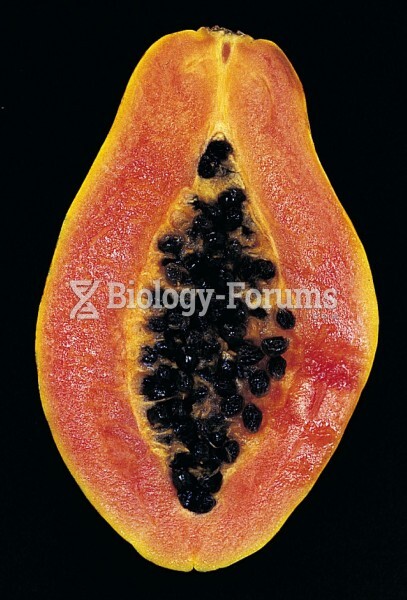This topic contains a solution. Click here to go to the answer
|
|
|
Did you know?
People about to have surgery must tell their health care providers about all supplements they take.
Did you know?
Vaccines prevent between 2.5 and 4 million deaths every year.
Did you know?
The longest a person has survived after a heart transplant is 24 years.
Did you know?
It is believed that humans initially contracted crabs from gorillas about 3 million years ago from either sleeping in gorilla nests or eating the apes.
Did you know?
More than 34,000 trademarked medication names and more than 10,000 generic medication names are in use in the United States.







